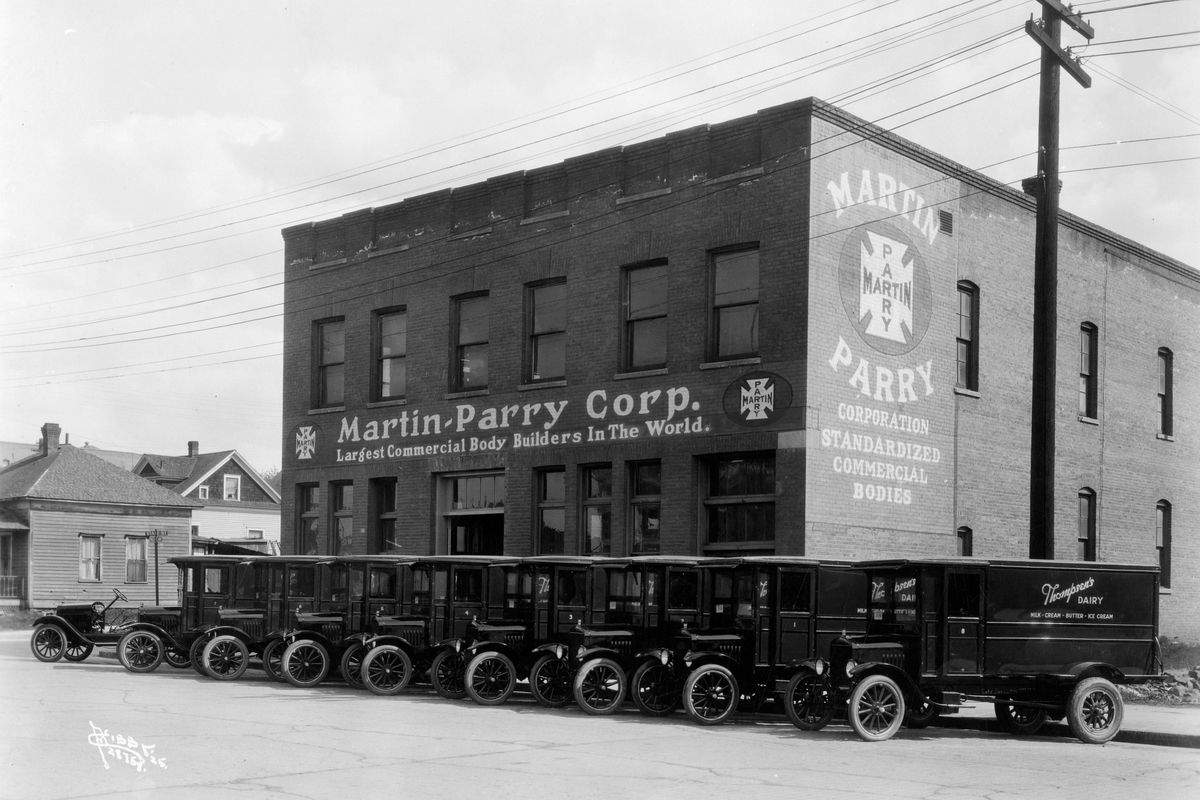Then and Now: Universal Auto Co.

Phillip Garnett came to Spokane in 1917 as a regional representative for the Ford Motor Co. He was stationed at Universal Auto Co. in Spokane, the Ford dealership. Before he was 30 years old, he took over the dealership and began expanding. He added other auto brands and a shop to assemble Martin-Parry commercial truck bodies that mounted on the Model T automotive frame.
Garnett saw the introduction of the Model A in 1927 and the flathead V-8 engine in the early 1930s.
But the Great Depression brought difficult times. To forestall insolvency, Garnett wholesaled every one of his used cars in 1935 for cash to buy the next year’s models and keep going. He laid off eight mechanics, prompting the machinists and mechanics union, which believed he was trying to bust the union, to picket his shop in 1937. He said the strike was one of the reasons he locked the doors after 20 years and declared bankruptcy in August 1937.
“I closed the places myself to conserve the assets for the benefit of the creditors,” he told the Spokane Chronicle. His wife, Madge, died a few months later.
The closure idled 75 employees, but Garnett found work at Kauffman Buick as a salesman. The bankruptcy court continued to hound Garnett for thousands more dollars for creditors. After fighting for a few years, he settled with the court and moved to San Francisco in 1942. He became manager, then president, of Foundation Garments, a clothing manufacturer. He worked there until his death in 1956 at age 67.
Before the Martin-Parry shop, the building at 19 W. Pacific Ave. housed commercial laundries, with apartments above, until 1919. The truck shop was housed there until 1933, followed by another laundry.
Vacant again in 1935, the Green-Hughes Printing Co. moved in from 1936 to 1951. The company printed Labor World, a weekly publication dedicated to labor and union issues around the region. Catholic Charities now owns the building and calls it the Myrtle Woldson Institute, named for the philanthropist who gave generously to Catholic and civic causes before she died in 2014. It houses programs to help families facing homelessness.
– Jesse Tinsley